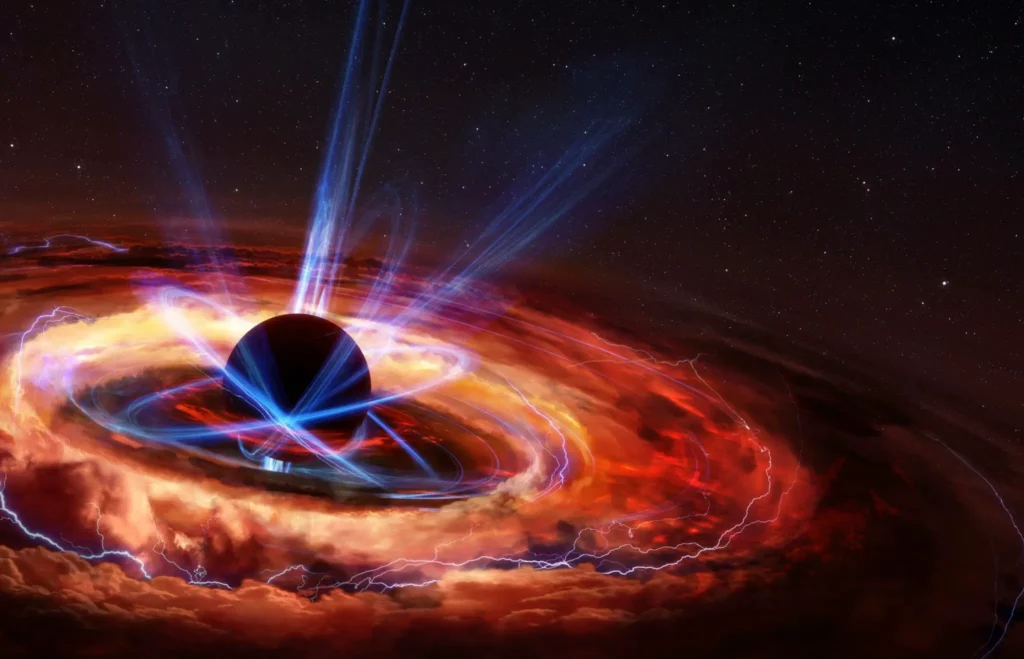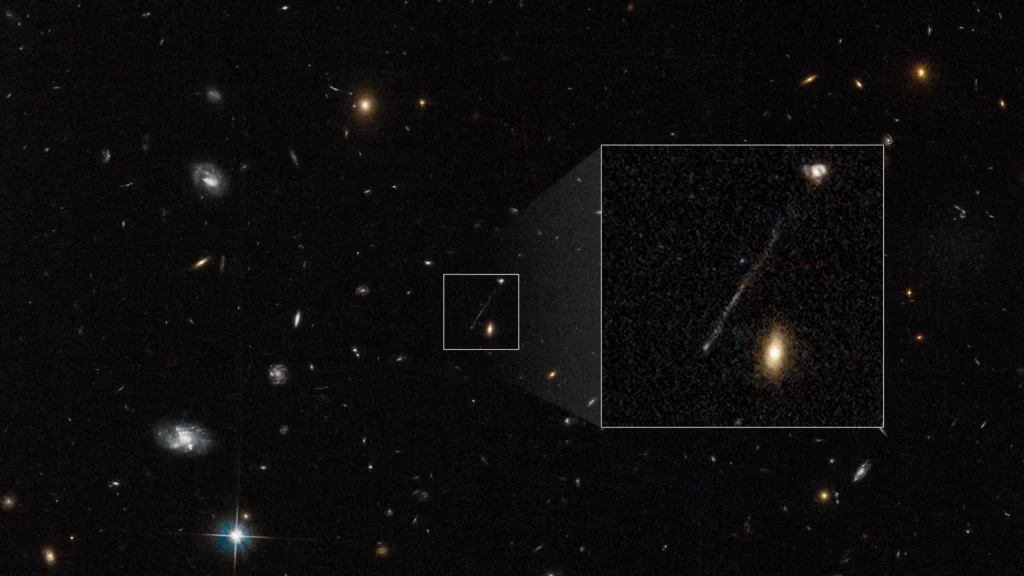The Hubble Space Telescope has made yet another groundbreaking discovery, capturing images of a black hole being ejected from its host galaxy at incredible speeds.

Table of Contents
This extraordinary event sheds light on the complex and dynamic nature of galactic environments and provides valuable insights on the behavior of black holes. In this article, we will explore the details of this exceptional cosmic phenomenon and discuss its implications for our understanding of the universe.
The Discovery
The Hubble Space Telescope, operated by NASA and the European Space Agency (ESA), has been instrumental in revolutionizing our understanding of the cosmos. In this recent discovery, astronomers using Hubble identified a black hole being expelled from its host galaxy at breakneck speeds. These observations were made possible by the telescope’s advanced capabilities, allowing for the detection of faint and distant objects in space.
The Ejection Mechanism

The exact mechanism responsible for ejecting the black hole remains a subject of scientific debate. However, current theories propose that the ejection could be a result of a violent gravitational interaction between two or more massive black holes in the galaxy’s core. Such interactions can lead to the release of immense amounts of energy, propelling one or more black holes out of the galaxy at high velocities. Another possible cause is a powerful supernova explosion that occurred close to the black hole, pushing it out of the galaxy with tremendous force.
Implications for Galactic Evolution
This rare event has significant implications for our understanding of galactic evolution. The ejection of a black hole from its host galaxy can disrupt the delicate balance of mass and energy within the galaxy, potentially leading to drastic changes in its structure and dynamics. Additionally, the ejected black hole may eventually merge with another galaxy, altering its properties and contributing to the growth of supermassive black holes at the centers of massive galaxies.
The Role of Gravitational Waves
The ejection of a black hole from its galaxy is also expected to produce gravitational waves – ripples in spacetime caused by the acceleration of massive objects. Observing and analyzing these gravitational waves can provide valuable information about the properties of black holes, the nature of gravity, and the history of the universe. Future gravitational wave detectors, such as the Laser Interferometer Space Antenna (LISA), are expected to play a crucial role in studying these cosmic events.
Conclusion
The discovery of a black hole being expelled from its galaxy at incredible speeds marks yet another milestone in our understanding of the universe. It highlights the dynamic and complex nature of galaxies and underscores the importance of continued research and technological advancements in the field of astronomy. As we continue to explore the cosmos, we can expect to uncover more incredible phenomena that will challenge and expand our knowledge of the universe and our place within it.
Reference(s):
Research Article: The Astrophysical Journal Letters

